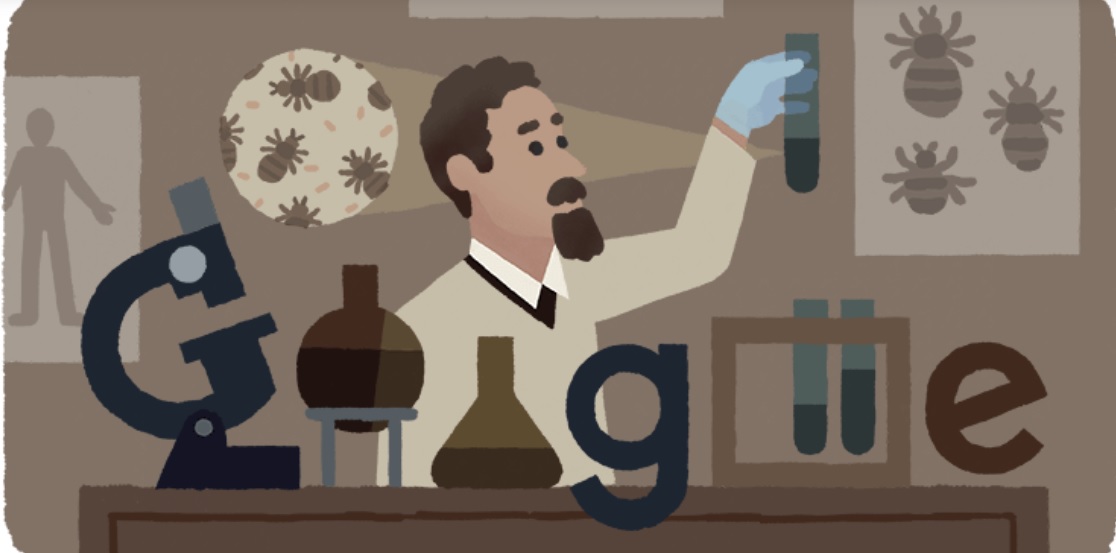Rudolf Weigl: Google Doodle celebrates 138th birthday of Polish biologist, physician

- Country:
- Poland
Happy Birthday, Rudolf Weigl!
Google dedicates a doodle to celebrate the 138th birthday of Polish inventor, doctor, and immunologist Rudolf Weigl. He produced the first effective vaccine against epidemic typhus—one of humanity’s oldest and most infectious diseases.
Rudolf Weigl worked during the Holocaust to save the lives of many Jewish men and women. He played an active role during the time in which he developed a vaccine for typhus as well as provided shelter for Jews, to protect them from execution by the Nazis.
Rudolf Weigl was Born in Prerau (now Přerov), Moravia, and then part of the Austro-Hungarian Empire, to Austrian-German parents. Weigl graduated in 1907 from the biology department at the Lwów University, where he had been a pupil of Professors Benedykt Dybowski (1833–1930) and J. Nusbaum–Hilarowicz (1859–1917). After graduation, Weigl became Nusbaum's assistant and in 1913 completed his habilitacja which effectively gave him tenure. He then received his doctorate degrees in zoology, comparative anatomy, and histology.
In 1914, he was appointed as a parasitologist in the Polish Army. As millions across Eastern Europe were plagued by typhus, Weigl became determined to stop its spread.
Body lice were known to carry the typhus-infecting bacteria Rickettsia prowazekii, so Rudolf Weigl adapted the tiny insect into a laboratory specimen. His innovative research revealed how to use lice to propagate the deadly bacteria which he studied for decades with the hope of developing a vaccine.
Weigl’s vaccine successfully inoculated its first beneficiary in 1936. When Germany occupied Poland during the outbreak of the Second World War, Weigl was forced to open a vaccine production plant. He used the facility to hire friends and colleagues at risk of persecution under the new regime.
An estimated 5,000 people were saved due to Weigl’s work during this period--both due to his direct efforts to protect his neighbors and to the thousands of vaccine doses distributed nationwide. Today, Weigl is widely lauded as a remarkable scientist and hero. His work has been honored by not one but two Nobel Prize nominations!
From studying a tiny louse to saving thousands of human lives, the impacts your tireless work had on the world are felt to this day.
Sources: Wikipedia, Google Doodles
Also Read: Francisco Toledo: Google Doodle on Mexican artist & activist’s 81st birthday










